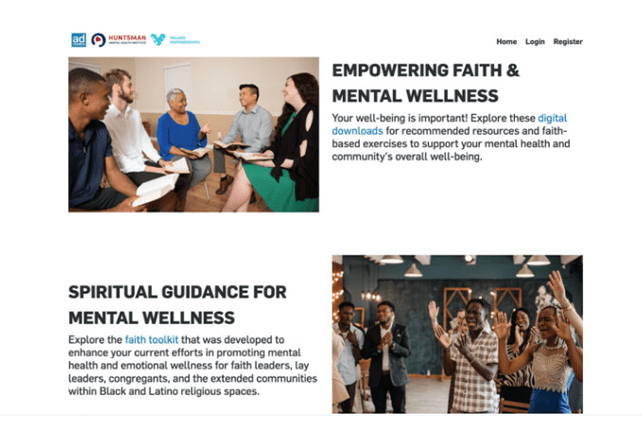(RNS) — Bishop T.D. Jakes has joined mental health and faith experts to launch a new curriculum to help clergy and lay leaders move beyond sayings like “I’m too blessed to be stressed.”
Such expressions may hide the strains and more serious mental health problems facing some people of faith, including congregational leaders, said the senior pastor of Dallas’ The Potter’s House and the chairman of the T.D. Jakes Foundation.
“We have these colloquialisms that don’t really allow help to come in,” said Jakes, kicking off a 90-minute online forum Tuesday (Nov. 14). “But tonight, we’re taking off the mask.”
The forum introduced the “Faith and Mental Health Hub,” a free online course that includes more than a dozen videos that aim to define mental health, reduce stigma and encourage self-care activities. It includes segments focused particularly on Black and Latino leaders, as research has shown that African American and Hispanic adults with mental illness are far less likely to have used mental health services than their white counterparts (39.4% and 36.1%, respectively, compared with 52.4%, according to data from the Substance Abuse and Mental Health Services Administration).
The course, some of which is offered in Spanish as well as English, also includes a “compassion and refer” section to help clergy shift from personally handling some regular forms of assistance, such as premarital counseling, to recommending someone with professional expertise, especially in an acute mental health situation.
The “mental health e-learning hub” is funded by the Ad Council and the University of Utah’s Huntsman Mental Health Institute as part of a multiyear Mental Health Initiative that includes the “Love, Your Mind” campaign that began in October. It is supported by Jakes’ foundation, leaders of several historically Black denominations and other faith networks, including the National Latino Evangelical Coalition and the National African American Clergy Network.
Overall, a 2023 Ipsos study showed that more than half of Americans — 58% — said they felt stressed to the point that it affected how they lived their daily life. A similar but slightly lower percentage — 53% —said they felt so stressed they could not cope or deal with things.
“There are so many leaders in our faith communities who are trying to be a resource for everyone else,” said Joshua DuBois, founding partner and CEO of Values Partnerships, which helped organize the video-based curriculum. “But frequently, their own mental health gets overlooked.”
In an interview, he said his organization and the Ad Council held listening sessions that helped them develop the course. They realized that even as faith leaders sought to provide some congregants with needed mental health assistance, those in key positions — pastors, head ushers, choir directors, youth pastors — “were often the last ones to get the resources that they need when it comes to mental health.” Some recalled the toll of the increased number of deaths of congregants during the pandemic; others spoke of personal issues such as divorce.
Speakers at the forum said it is important for faith leaders to have confidants, friends and sometimes professional counselors with whom they can talk.
“The worst kind of loneliness is to be surrounded by people with whom you cannot speak,” said Jakes during the forum.
Added the Rev. Danté Quick, senior pastor of First Baptist Church of Lincoln Gardens in Somerset, New Jersey: “We have to begin to think of ourselves not just as men and women of God, but as creatures needing the aid of each other. So, for me, God aids me through a good therapist.”

